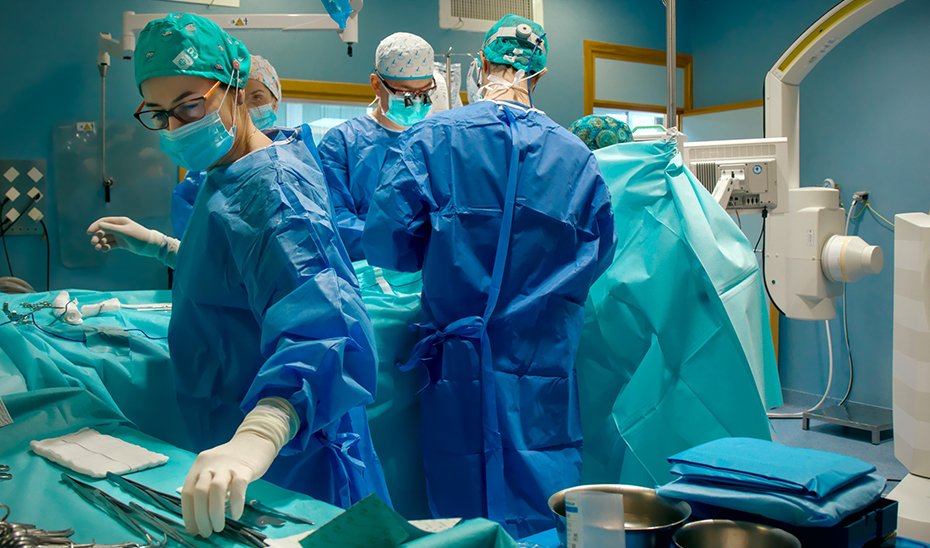Las cardiopatías congénitas, whose international day is celebrated on February 14th, are the most common malformation at birth, affecting 1 out of every 100 newborns. Many of these patients require lifelong cardiological follow-up, and a significant percentage need heart surgery or cardiac catheterization. Specifically, in Andalusia, throughout 2024, a total of 364 surgical interventions were performed, mostly in the leading Andalusian hospitals in this field: the Virgen del Rocío University Hospital in Seville, the Regional University Hospital of Malaga, the Virgen de las Nieves University Hospital, and the Reina Sofia University Hospital in Cordoba. The latter has also performed four pediatric heart transplants and is the sole authorized center in the region for this complex medical treatment.
In addition to these figures, we must add the 24 underage patients from other countries, such as Morocco, Mali, Guinea, Cameroon, Senegal, Venezuela, and Honduras, who were treated at the three Andalusian hospitals during the past year. This is part of an international cooperation effort through collaboration with various NGOs that began 35 years ago to assist children with complex heart conditions from countries with limited resources. Furthermore, medical and nursing teams from the Regional Hospital of Malaga traveled to Nicaragua this year, where they treated a total of 12 minors, sharing knowledge and experiences with local professionals.
Cardiac catheterization has been one of the most commonly used therapeutic procedures for these patients in Andalusia, with a total of 460 procedures performed last year. Additionally, a total of 14,200 outpatient consultations were conducted, including new patients and follow-ups, and a total of 772 individuals were treated in the wards of the main referral centers. This is where echocardiographic assessments and necessary treatment adjustments are made until the final discharge. The vast majority of these patients were minors post-operated for cardiovascular surgery from pediatric ICUs.
Regarding diagnostic tests, over 14,000 echocardiograms were conducted, and more than 200 MRIs were performed – some of them highly complex, requiring apnea. Collaboration with the Radiology services of different centers is enabling a more accurate study and better monitoring of these patients, often avoiding more invasive tests.
«In recent decades, there have been spectacular advances in the diagnosis and treatment of these patients,» states Ignacio Zabala, Head of Pediatric Cardiology at the Regional Hospital of Malaga. Evidence of this progress is that currently, over 95% of newborns with congenital heart defects reach adulthood with a good quality of life. In fact, there are now more adults with congenital heart disease than minors. Cardiology services are establishing specific follow-up units for adult patients, such as the Adult Congenital Heart Disease Unit at the Virgen del Rocío Hospital in Seville, designated as a reference unit by the national health system (CSUR) in 2018.
Multidisciplinary Care and Key Advances
Cardiovascular surgery and pediatric cardiology have seen significant development, leading to increased hope and quality of life for these patients. Elena Gómez, Pediatric Cardiology Coordinator at the Reina Sofia Hospital in Cordoba, highlights that one of the most significant advances for children in less invasive procedures is the placement of percutaneous pulmonary valves without open-heart surgery.
The development of Extracorporeal Membrane Oxygenation Therapy (ECMO), a system that substitutes the heart and lungs in very severe cases awaiting recovery or as a bridge to transplantation, has been another major breakthrough in treatment.
«Given its complexity, pediatric cardiology also requires close collaborative work with other specialties such as cardiovascular surgery, arrhythmology, adult congenital heart disease unit, hemodynamics, oncology, radiology, gynecology, intensive care, anesthesia, and physiotherapy, in addition to the essential work of nursing in operating rooms and pediatric ICUs or wards, a highly specialized and essential task for patient recovery,» concludes Francisco García Angleu, Pediatric Cardiology Section Coordinator at the Virgen del Rocío Hospital in Seville.

